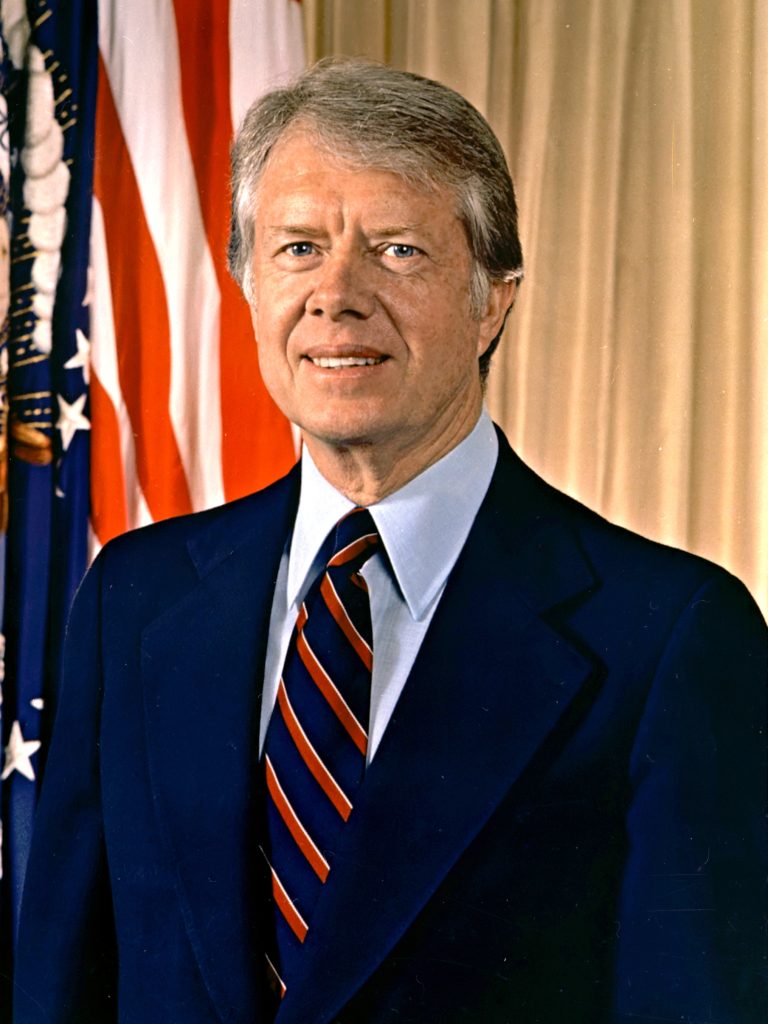Image: The Carter family store in the Jimmy Carter National Historical Park in Georgia (Photo: Wikipedia)

Electric co-ops have paid tribute to James (Jimmy) Carter, the 39th president of the United States, who passed away on 29 December at the age of 100 after a long battle with cancer.
Current US President Joe Biden gave a eulogy at Carter’s state funeral on 9 January in Washington, DC, an event attended by four former US presidents, Canadian prime minister Justin Trudeau and Prince Edward, the Duke of Edinburg, among others.
“He embodied the very best of America: A humble servant of God and the people,” said Biden in a statement.
Carter lay in state in the Rotunda of the US Capitol for three days, during which tens of thousands of US citizens paid their respects.
As world leaders paid tribute to the late President, the National Rural Electric Co-operative (NRECA) celebrated his legacy in an article exploring his co-op credentials. In office, Carter helped to grow co-ops through the appointment of John Lewis as the associate director of Action, the federal volunteer agency, which helped rural communities in southern states set up co-operatives. He also promoted energy conservation, installed a White House solar hot water system and was guest speaker at several NRECA events. Having grown up on a 360-acre farm outside Plains, Georgia, he was well aware of the difference rural electric co-ops made to communities across the US.
He spoke fondly of Sumter EMC, his local electric co-op, which brought electricity to his family’s farm when he was a teenager.
“I think the best day in my life, the one that I remember most vividly – with the possible exception of my wedding day – was the day they turned the lights on in our house,” he told an Electric Cooperative Youth Tour of the White House in June 1978.
“The bringing of the rural electric program to the farms of our nation made it possible for us to stretch our hearts and stretch our minds to encompass public involvement in affairs that would not have been possible without the rural electric programme,” he added.
His father Earl was involved in setting up the co-op and served as a board member for several years.
The co-op’s former CEO, Ted McMillan, told NRECA in 2015 that Carter remained an active member of the co-op, occasionally calling to find out more about the co-op’s electric service at his property or discuss co-op policies.
While running for president in 1976, he addressed an NRECA annual meeting in Anaheim, California, as part of his efforts to engage with rural voters. As a man who had not forgotten his origins, he continued to engage with NRECA, including by delivering a video message from the White House for one of its events due to not being able to attend it in person.
Other tributes from the sector included one from Kentucky Electric Cooperatives, which posted on social media: “President Carter, who took office in 1977 amid major energy challenges in the United States, was a consistent supporter of rural development, including advocating for low-cost financing of electric and telephone services to rural areas through the Rural Electrification Administration and the co-ops that provide those services.“
Carter, who had only one term in office, between 1977 and 1981, advocated not only the co-operative business model, but also co-operation in general. He was the broker of the Camp David Peace Accords between Egypt and Israel in 1978 and negotiated arms reductions with Soviet general secretary Leonid Brezhnev. But his inability to secure the swift release of US diplomats captured by Iranian militants in 1979, along with the Soviet invasion of Afghanistan, led to a landslide loss in his presidential campaign against Ronald Reagan in 1981.
A year after leaving the While House he founded the Carter Foundation along with his wife Rosalynn, to campaign for conflict resolution, advancing democracy and preventing diseases. He was recognised for his humanitarian work with a Nobel Peace Prize in 2002.

